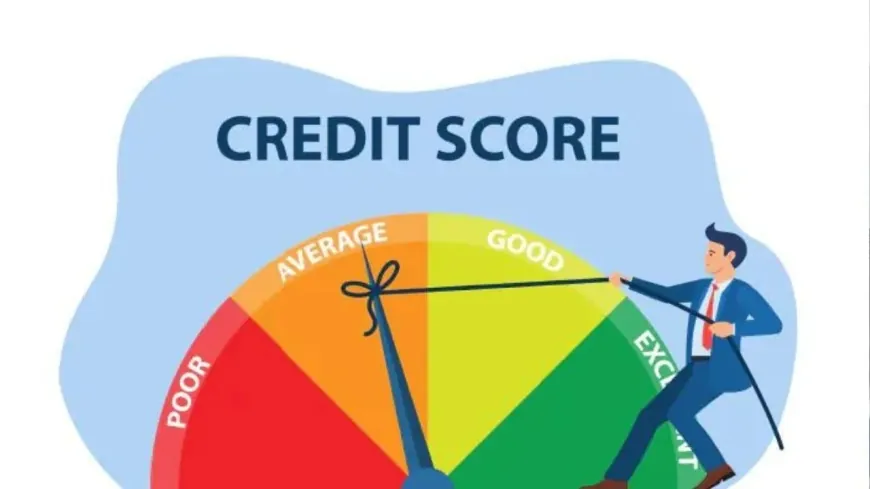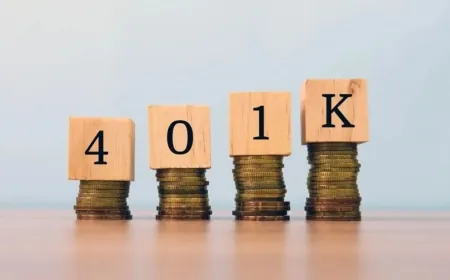Most Americans Still Believe These Credit Score Myths—and It’s Costing Them
Credit score myths are draining your wallet. Carrying a balance won’t boost your score. Paying old collections might not help either—and most people don’t know it.

A bad credit score won’t just block you from loans—it can quietly cost you thousands. Yet millions of people still believe credit myths that do more harm than good.
From renting an apartment to buying a car, getting a mortgage, or even landing some jobs, credit can open doors or slam them shut. Yet despite how important credit is, most people are still relying on secondhand advice and half-truths passed down from friends, family, or random influencers online.
The problem? Much of that advice is wrong—and blindly following it can lead to credit mistakes that cost you for years.
If you’ve been told to carry a credit card balance, to ignore your credit until you need a loan, or to pay off old debts expecting a score boost, you’re working with outdated ideas. Financial experts warn these myths can trap you in a cycle of poor credit, high interest rates, and missed opportunities.
Let’s clear the air. Here’s a myth-busting guide to the 7 most harmful credit misconceptions—and how to get your credit on track the right way.
1. Checking my credit will lower my score.
A lot of people avoid looking at their own credit because they’ve heard it will cause their score to drop. This myth has been floating around for decades—but it’s completely false.
When you check your own credit report, it’s considered a soft inquiry—and soft inquiries have no impact at all on your credit score. It’s the financial equivalent of stepping on a bathroom scale. You’re just checking your own status.
On the other hand, when a lender checks your credit to decide whether to approve you for a new loan or credit card, that’s called a hard inquiry, and too many hard inquiries in a short period can chip away at your score.
Monitoring your credit is smart, not risky. You should review your reports at least once a year to spot mistakes, catch identity theft, and make sure your information is accurate. Think of it as regular maintenance—like checking the oil in your car.
You can access your reports for free at AnnualCreditReport.com, no strings attached.
2. Leaving a balance on my credit card helps my score.
This is one of the most expensive myths out there—and it’s made credit card companies billions in interest payments.
Some people believe they should purposely carry a balance on their credit card to “prove” they’re using credit. But this is not how credit scoring works.
Credit scoring models reward you for keeping your balances low, not for paying interest. In fact, the most responsible credit behavior is using your card regularly for things like groceries or gas—and then paying the balance off in full each month.
This shows lenders you’re capable of using credit wisely without depending on it for survival. It also protects you from getting trapped in debt.
The technical term for this is credit utilization, which measures how much of your available credit you’re using. Experts recommend keeping your utilization under 30%, but under 10% is even better.
Pro tip: If you want to boost your score, set up automatic payments for the full balance every month. That way you’ll avoid both debt and interest charges.
3. I’ll fix my credit when I need a loan.
Many people treat credit like a fire extinguisher—they don’t think about it until there’s an emergency. But that’s a risky game.
If you wait until you’re ready to buy a house, finance a car, or apply for a business loan to start worrying about your credit, you might discover it’s too late to fix problems quickly.
Credit repair is not instant. It’s a long-term process, because credit scores are based on your financial history—not just what you did last week.
Here’s a real-world timeline of how long credit improvements usually take:
| Credit Repair Action | Average Time to See Change |
|---|---|
| Pay down high credit card balances | 30 to 45 days |
| Dispute errors on credit reports | Around 30 to 60 days |
| Start building credit from scratch | At least 6 months |
| Remove negative marks naturally over time | 7 to 10 years |
Credit is like planting a tree: The sooner you start, the better. Waiting until the moment you need a loan is like trying to grow an oak overnight.
4. Paying off collections will erase them from my credit report.
If you’ve ever paid off an old collection and then checked your credit report expecting it to disappear, you probably learned the hard way that it doesn’t work like that.
When a debt goes to collections, it’s marked on your credit report whether you pay it or not. Paying it may stop collection calls, prevent legal action, and give you peace of mind—but it doesn’t automatically remove the record from your report.
In fact, most collection accounts stay on your report for seven years, starting from when you first missed a payment—not when you paid it off.
A few important facts:
-
Newer credit models, like FICO 9 and VantageScore 4.0, ignore paid collections, but most lenders still use older models that don’t.
-
Medical collections under $500 are now excluded from credit score calculations, even if they’re unpaid.
-
In some cases, you can negotiate a “pay-for-delete” agreement with a collector, but they’re not required to agree.
If you’re not sure how to handle a collection, it’s wise to speak with a nonprofit credit counselor before paying, especially if the debt is close to the seven-year expiration date.
5. I can dispute bad information and make it disappear, even if it’s true.
There’s a lot of confusion about credit disputes. Some shady companies will tell you they can wipe out your bad credit history if you just pay them to file disputes. Don’t fall for this.
If the negative information on your credit report is accurate, it will stay there. Disputing accurate information won’t erase it.
The dispute process exists to correct errors—like debts you never owed, payments marked late when they weren’t, or accounts that don’t belong to you.
Trying to “game the system” by disputing true negative marks can backfire. Even if a credit bureau temporarily removes the item during an investigation, it will likely return to your report once verified.
Your best strategy? Focus on building new positive credit history to outweigh the old mistakes.
6. If I have a high credit score, I must be rich.
This one comes up a lot—but it’s based on a misunderstanding of how credit works.
Your income is not part of your credit score. Credit scores measure how you handle debt, not how much money you make.
A millionaire who skips bill payments can have terrible credit. Meanwhile, someone with a modest salary who pays on time, avoids debt, and manages credit responsibly can have an excellent score.
Credit bureaus don’t care about your paycheck. They look at your:
-
Payment history
-
Credit card balances
-
Length of credit history
-
Types of credit you use
-
How often you apply for new accounts
Good credit is about consistency, not wealth.
7. Once you have bad credit, you’re stuck with it forever.
Credit mistakes can feel permanent, but they’re not. The credit system is designed to forgive over time—as long as you change your habits.
Here’s how long negative marks stay on your credit report:
| Negative Event | Removal Timeline |
|---|---|
| Late payments (30+ days overdue) | 7 years |
| Debt collections (paid or unpaid) | 7 years from first delinquency |
| Chapter 13 bankruptcy | 7 years |
| Chapter 7 bankruptcy | 10 years |
| Foreclosure or repossession | 7 years |
As the years pass, old problems matter less. And once they fall off your report, they no longer affect your score at all.
Take Control of Your Credit—The Right Way
Credit doesn’t have to be confusing. The key is knowing the facts and ignoring the noise.
Here’s a quick roadmap for healthier credit:
-
Check your credit regularly—it’s free and won’t hurt your score
-
Pay bills on time—this is the single most important factor
-
Keep balances low—use credit cards, but pay them off
-
Don’t wait until you need credit to care about it
If you feel stuck or overwhelmed, reach out to a trusted nonprofit credit counselor. They can help you build a plan that actually works—no gimmicks, no myths.
Also Read: 5 Credit Score Myths That Could Be Hurting Your Finances
|
Follow iShook on Social Media for More Tips and Updates! |































































